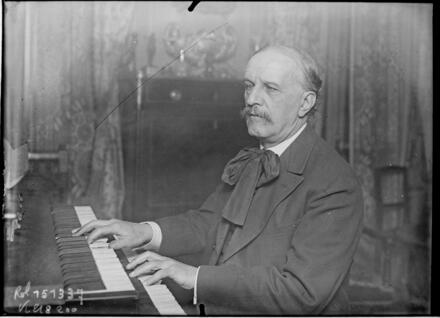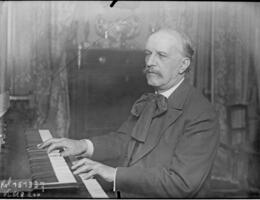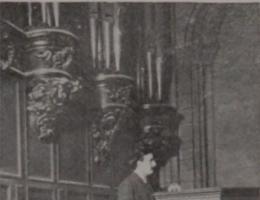
Louis VIERNE
1870 - 1937
Composer, Organist
Suffering from congenital cataracts from birth, Louis Vierne only gained partial sight at the age of six. He then began his music studies in Lille and continued them in Paris after his family moved there. From 1881, he attended the Institution Nationale des Jeunes Aveugles, where he met César Franck, who advised him to take up the organ. Lessons with Louis Lebel and Franck took him to the Paris Conservatoire in the early 1890s. Vierne soon became Widor’s assistant (a job he did free of charge for over twenty years) and won the first prize for organ in 1894. In 1900, he obtained the prestigious post of organist at the church of Notre-Dame. However, the great disappointment of his life was being unable to fulfil his ambition of teaching the organ class at the Paris Conservatoire. He consoled himself with a teaching post at the Schola Cantorum, then at the École César Franck. This professional frustration, his progressive blindness and his periodic financial difficulties gave rise to a deep depression, which was only made worse by the loss of his son and brother during World War One (he dedicated the beautiful song Solitude to his brother). Vierne is mainly remembered for his organ works, in particular his Six Symphonies. In them, the composer developed a highly chromatic style underpinned by an elaborate harmonic framework. Other characteristic features of his compositions are themes containing modal elements and his use of syncopated rhythmic patterns. He died at the age of 67 from a heart attack while giving a recital at Notre-Dame.
Focus
Focus
L'école franckiste
Scientific publications
Publication







